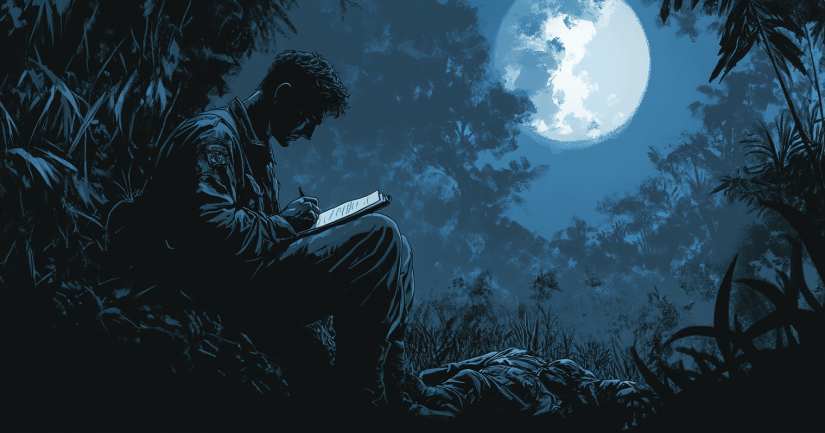
Explore the stark realities of war and human resilience with The Things They Carried Chapter 7 Quiz, a powerful look at soldiers’ lives. Chapter 7 unveils the emotional depths of the characters, revealing their fears, hopes, and humanity. This quiz will guide you through the intricate layers of storytelling and character development in this chapter. You’ll uncover the symbolism behind the physical and emotional burdens each soldier carries.
As you progress, you’ll gain insights into Tim O’Brien’s masterful use of language to convey the weight of memory and experience. Discover how the author blends fact and fiction to blur the lines of reality, inviting readers to question the nature of truth itself. This quiz will test your understanding of the narrative’s nuances, encouraging you to think critically about the themes of courage, guilt, and redemption.
One chapter leads to the next! See what happens in The Things They Carried Chapter 8 Quiz, revisit the themes of The Things They Carried Chapter 6 Quiz, or step back for a big-picture view with The Things They Carried Full Book Quiz.
Engage with the material on a deeper level. Reflect on the enduring impact of war on the human spirit. Are you ready to embark on this intellectual journey? Dive in and explore the haunting beauty of The Things They Carried. The Things They Carried Quizzes: Explore Tim O’Brien’s Vietnam War stories …
What Happened – The Things They Carried Chapter 7 Quiz
In Chapter 7 of The Things They Carried, the soldiers deal with the aftermath of a traumatic event. They are in Vietnam during the war. Rat Kiley, a medic, writes a letter to the sister of his friend, Curt Lemon. Curt had died in an accident with a grenade. Rat writes about how much he admired Curt. He hopes the letter will show the sister how brave Curt was. However, Rat never gets a reply.
The chapter also describes a story from the past. The soldiers recall a time when Curt and another soldier, Lee Strunk, played a game. They used smoke grenades and pretended to be tough. During the game, Curt stepped on a rigged mortar round. The explosion killed him. The soldiers remember how they had to gather Curt’s body parts from the trees.
Tim O’Brien, the author, explains how stories help people cope with war. He says stories can make the dead seem alive. He talks about how soldiers carry memories. They carry both physical items and emotional burdens. The chapter ends with a story about a man named Mitchell Sanders. He tells a tale about soldiers hearing strange noises in the jungle. They hear music and voices, but when they investigate, they find nothing.
The soldiers become frightened and call in airstrikes. Later, Sanders admits he made up some parts of the story. The chapter shows how storytelling is important to the soldiers.
The Things They Carried Chapter 7 – Quotes
- “War is hell.” – {Norman Bowker}, ‘Reflecting on the trauma and impact of war on soldiers.’
“They carried their own lives.” – {Narrator}, ‘Describes the emotional and psychological burdens the soldiers bear.’
“It was very sad, he thought. The things men carried inside.” – {Narrator}, ‘Highlights the internal struggles and personal battles faced by the soldiers.’
“He wished he could have explained some of this.” – {Norman Bowker}, ‘Expresses Bowker’s desire to communicate his experiences and feelings.’
“You feel an intense, out-of-the-skin awareness of your living self.” – {Narrator}, ‘Conveys the heightened sense of being alive amidst the dangers of war.’
“He couldn’t talk about it and never would.” – {Narrator}, ‘Norman Bowker’s struggle with articulating his war experiences and emotions.’
“That’s all there was to it, really.” – {Norman Bowker}, ‘Bowker’s resigned acceptance of the simplicity and inevitability of death in war.’
“Nobody listens.” – {Norman Bowker}, ‘Reflects the isolation and silence faced by veterans upon returning home.’
“All the things a medic must carry.” – {Narrator}, ‘Lists the physical and emotional responsibilities of medics in the field.’
“He drove slowly through the twilight.” – {Narrator}, ‘Describes Bowker’s aimless drive, symbolizing his search for meaning and peace.’
